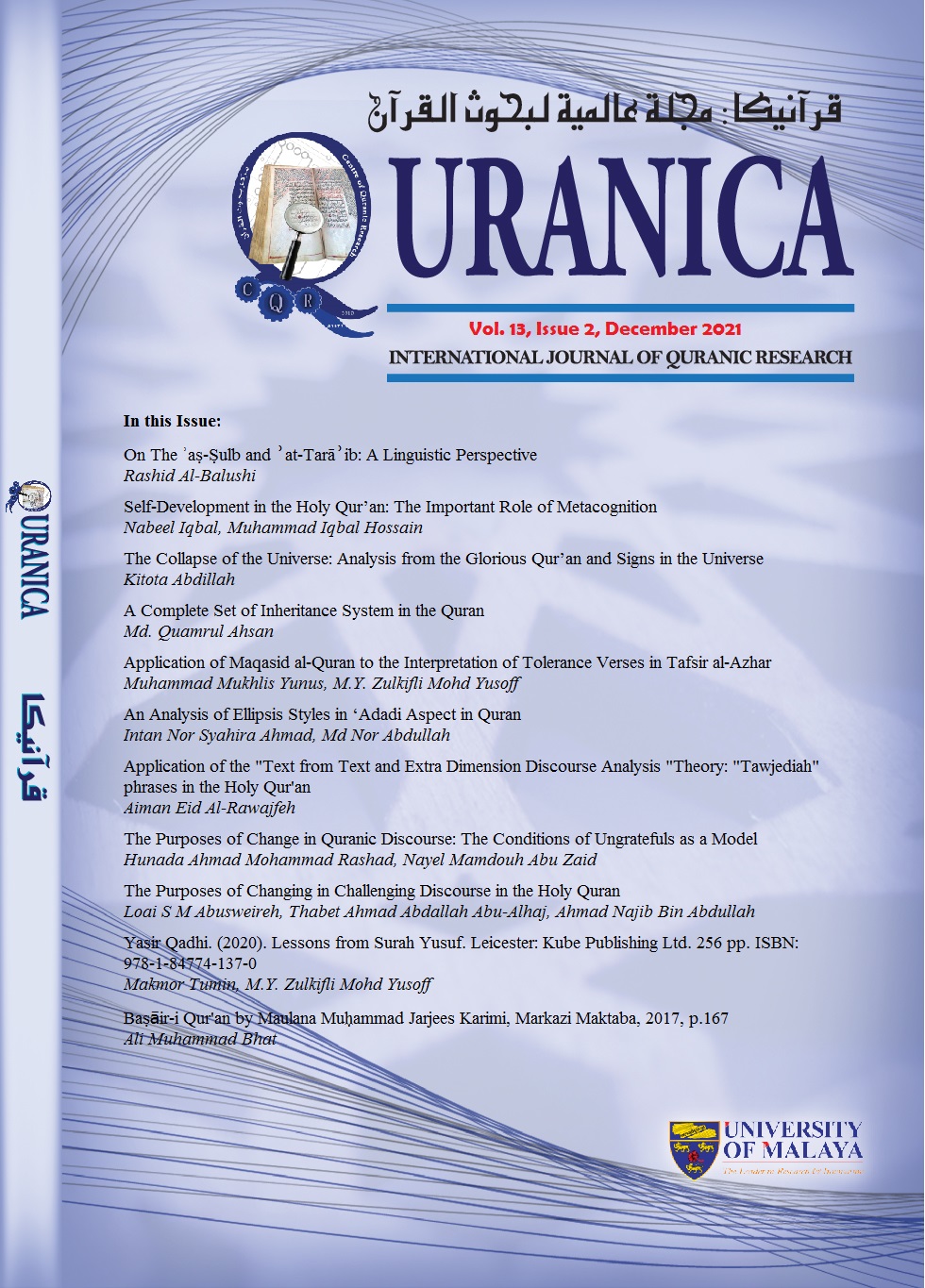Self-Development in The Holy Qur’an: The Important Role of Metacognition
DOI:
https://doi.org/10.22452/quranica.vol13no2.2Keywords:
Self-development; Quran; Islam; Metacognition; MeditationAbstract
The existing literature on Islamic self-development does not highlight the important role of metacognition in the self-development process. In this article, we argue that metacognition is the first step towards the specific type of self-development stressed in the Holy Qur’an. Therefore, we develop a simple guide to self-development based on the Qur’an with metacognition as the initial step. Firstly, the chapters and/or verses in the Qur’an related to self-development was identified. Secondly, the important words from these verses were studied using a dictionary of the Holy Qur’an. Then this information was used to derive a simple guide to self-development. The article also compares the Qur’anic concept of self-development with that of meditation in Buddhism. Interestingly, we find that there are certain similarities as well as differences between the two schools of thought. In particular, the Qur’an emphasizes an active engagement with negative thoughts, emotions, and mental processes as well as a deliberate attempt at cultivating specific positive traits and mental processes. In contrast, the meditation techniques in Buddhism are more passive and does not emphasize the active internal struggle (jihād al-nafs) that the Holy Qur’an emphasizes. Future research can scientifically test and compare the effects of metacognition on spiritual-development and/or self-development.
Downloads
Downloads
Published
Issue
Section
License
Disclaimer
QURANICA makes every effort to ensure the accuracy of all its contents. However, opinions, discussions, views and recommendations are expressed in this journal do not necessarily reflect the official policy of QURANICA or views of its editors or publishers. Therefore, QURANICA and its publishers will not be liable for any controversy may be arisen. The journal reserves the right, at its sole discretion, to change its terms and conditions of publications.
Copyright
It is a condition of publication that manuscript submitted to the journal have not been published, accepted for publication, nor simultaneously submitted for publication elsewhere. By submitting a manuscript, the author(s) agrees that copyright for the article is transferred to the publisher, if and when the manuscript is accepted for publication.






